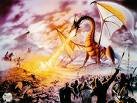As a Giller Prize finalist and a Governor General Award nominee in 2000, Eden Robinson's Monkey Beach comes well recommended. The first-person narrative style brought me alongside the inner thoughts of a teenage protagonist, Lisamarie Hill, as she was forced to deal with the eventual deaths of her new found uncle Michael and her Grandmother Ma-ma-oo. However, this is much more than a coming of age story; in fact, it asks us to consider at what point we have "come of age"? While we come to see that Lisa's personal troubles are also rooted in the fading of her family's native Haisla tradition, and that as a result there is a gaping disconnection between Haisla and European culture where Lisa is constantly pressured to indulge one set of customs over another creating a truly unsatisfying and conditional life for her, Robinson describes a world where it appears impossible for two worlds to co-exist. In such a place, what are the opportunities for reconciliation?
I enjoyed the new perspectives Ma-ma-oo offers to understanding the world, both in a spiritual and bodily sense. For me, having spent a childhood exploring along coastlines, in wooded lands of lakes, under starry skies, and often around a campfire, the overarching imagery of nature bound the narrative together. The Haisla proverb that introduces Monkey Beach uses nature to belittle our vindictive capacity and to suggest that unity is possible, but it is a unity found outside of the imagination:
It is possible to retaliate against an enemy,
But impossible to retaliate against storms.
What do you make of this proverb?
Saturday, June 16, 2007
Subscribe to:
Post Comments (Atom)


No comments:
Post a Comment